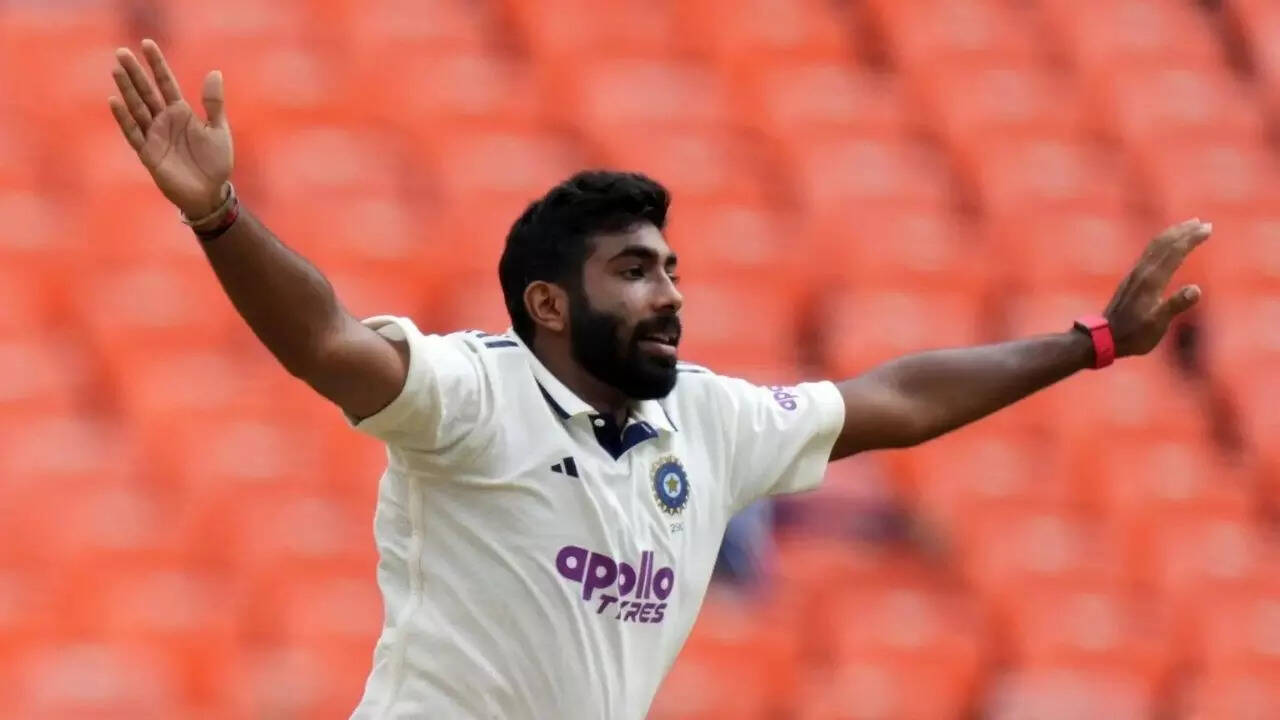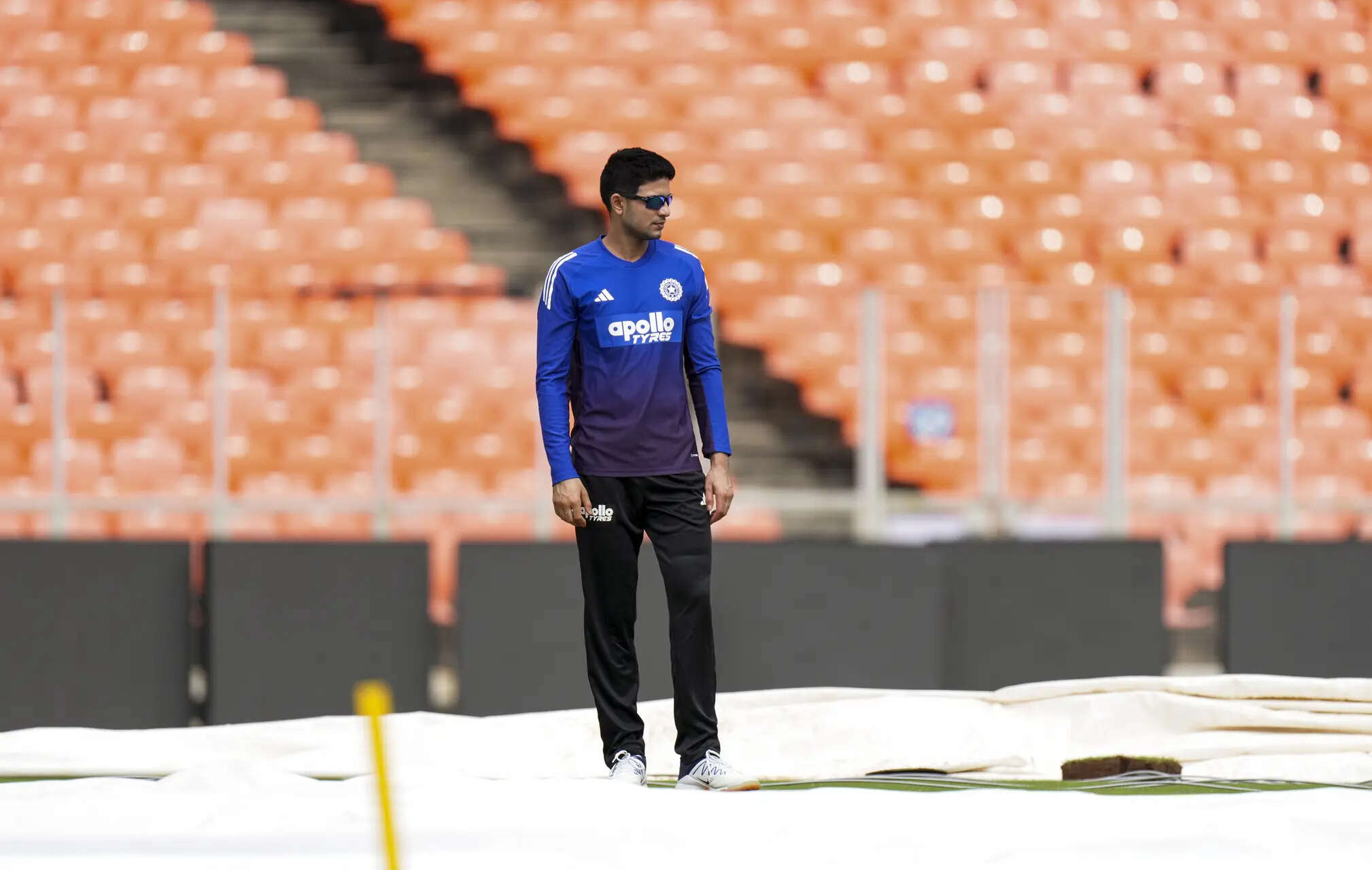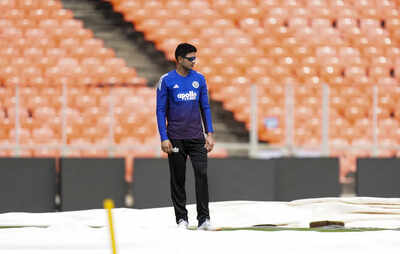Ahmedabad: American businessman and the founder of Amazon once said, “If you’re not stubborn, you’ll give up on experiments too soon. And if you’re not flexible, you’ll pound your head against the wall and you won’t see a different solution to a problem you’re trying to solve.”Indian Test captain Shubman Gill seems to be a believer in that philosophy. Without saying it in as many words, he gave enough indications that India decided to move away from their preference for rank turners, a nonnegotiable under previous captains like Virat Kohli and Rohit Sharma, while playing Test matches at home.Playing on Bunsen burners like Indore, Pune and Mumbai resulted in ego-shattering losses and dwindling batting averages of star players, though it also helped the team conjure home wins to make two WTC finals.Speaking to the media before the first Test against West Indies, Gill, while admitting the team is juggling between the thoughts of playing a third seamer due to the grassy surface or sticking to the quality and potency that the four spinners in the fifteen offer, said, “I can’t really speak about what were the conversations before I came in as captain, but yes, we would be looking to play on wickets that offer help to both batters and bowlers.”In short, what he meant was the team would like to play on truer surfaces that saw them compete marvellously in England in a famous 2-2 draw and a series in which Gill amassed 754 runs in five Tests, all of them lasting five days.
Gill, though, feels that overseas teams should still be tested by spin and reverse swing, two attributes that are a given in red-ball cricket in India. But he wants the Tests to be more of an oldfashioned long read and not a quick story or reel posted on Instagram.“We are looking to play hard, grinding cricket. Over the past few years, Test matches in India haven’t really lasted for five days. What we are looking to do is to play some good hard cricket. All the Test matches that we played in England went pretty deep. We wouldn’t be looking for any easy options,” Gill stressed, his words echoing clarity, just like his plans while batting.That clarity seemed to have gone missing when he batted in the nets on Tuesday as he either edged or played and missed. His stint on Wednesday though was more serene and unhurried. His flow was better, the rhythm was there, and the defence was tight.
Poll
Do you agree with Shubman Gill’s approach to move away from spin-dominated pitches in Test matches?
What did he hope to achieve in the two net sessions to help him switch back to Test mode? “I was just looking to work on defence and trying to get in the zone. Switching formats is more mental than about technique.”Gill stressed, though, that adjusting from the longer formats to the shorter one is an easier switch.So, how does he do it? “I just try to get in the zone. That zone is nothing for me. Just watching the ball well and being able to decide the areas where I can defend and attack and showing the requisite patience to be able to stick to that process,” Gill said.
WORKLOAD MANAGEMENT QUESTIONS RAISED AGAIN
India’s workload management policy surrounding Jasprit Bumrah sparked debate during the five-match Test series in England, where Bumrah had stated beforehand that he would only be able to play in three of the five games. Some even criticised the move.For a player who skipped Test matches and then played in the T20 Asia Cup, which many consider a low-hanging fruit, Bumrah’s management has triggered even more intrigue.Indian skipper Shubman Gill was asked if Bumrah would play both Tests against the West Indies. Gill’s answer was unspecific. “We’re going to take a call on a match-tomatch basis depending on how long a Test match goes on and how many overs our fast bowlers bowl,” he said.













